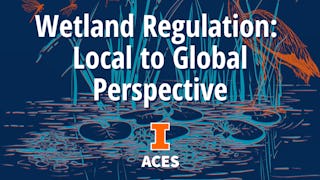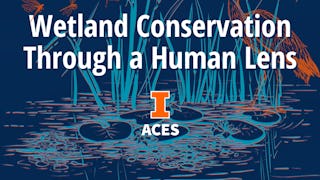Filter by
SubjectRequired
LanguageRequired
The language used throughout the course, in both instruction and assessments.
Learning ProductRequired
LevelRequired
DurationRequired
SkillsRequired
SubtitlesRequired
EducatorRequired
Explore the Nature Course Catalog
 Status: Free Trial
Status: Free TrialL&T EduTech
Skills you'll gain: Control Systems, Electric Power Systems, Electrical Power, Three-Phase, High Voltage, Simulation and Simulation Software, Engineering Analysis, Low Voltage, Simulations, Power Electronics, Electrical Engineering, Systems Analysis, Mathematical Modeling, Differential Equations
 Status: Free Trial
Status: Free TrialUniversity of Colorado System
Skills you'll gain: Caregiving, Patient Education And Counseling, Healthcare Ethics, Compassion, Patient Evaluation, Health Assessment, Self-Awareness, Communication, Cultural Sensitivity
 Status: Preview
Status: PreviewJohns Hopkins University
Skills you'll gain: Probability, Bayesian Statistics, Probability Distribution, Risk Modeling, Mathematical Modeling, Statistical Inference, Markov Model, Reliability, Simulations, Applied Mathematics, Statistical Analysis, Regression Analysis
 Status: NewStatus: Free Trial
Status: NewStatus: Free TrialUniversity of Illinois Urbana-Champaign
Skills you'll gain: Water Resources, Land Management, Environmental Engineering, Natural Resource Management, Environmental Policy, Environmental Regulations, Environment and Resource Management, Environmental Laws, Civil Engineering, Environmental Science, Community Development, Mitigation, International Relations, Governance
 Status: NewStatus: Preview
Status: NewStatus: PreviewUniversità di Napoli Federico II
Skills you'll gain: Political Sciences, International Relations, World History, Diplomacy, Social Sciences, European History, Environmental Issue, Socioeconomics, Governance, Economics, Trend Analysis, Security Strategy
 Status: NewStatus: Free Trial
Status: NewStatus: Free TrialUniversity of Illinois Urbana-Champaign
Skills you'll gain: Stakeholder Engagement, Community Outreach, Cultural Diversity, Policy Analysis, Social Sciences, Cultural Sensitivity, Environment and Resource Management, Environmental Issue, Environmental Policy, Natural Resource Management, Water Resources, Governance, Conflict Management, Critical Thinking
 Status: Free Trial
Status: Free TrialPackt
Skills you'll gain: Package and Software Management, Command-Line Interface, Linux, Linux Administration, Linux Commands, Red Hat Enterprise Linux, Unix Commands, File Systems, Software Installation, System Configuration, Unix, File Management, Operating Systems, Virtual Environment, Open Source Technology
 Status: Preview
Status: PreviewSkills you'll gain: Integral Calculus, Calculus, Advanced Mathematics, Differential Equations, Applied Mathematics, Linear Algebra, Mathematical Modeling, Mathematical Theory & Analysis, Derivatives, Physics, Geometry
 Status: Free Trial
Status: Free TrialSkills you'll gain: Continuous Monitoring, Medical Privacy, Risk Management, Risk Management Framework, Health Care Procedure and Regulation, Information Privacy, Security Management, Risk Analysis, Patient Safety, ISO/IEC 27001, Personally Identifiable Information, Information Systems Security, Security Controls, Information Assurance, Regulatory Compliance, Vulnerability Assessments, NIST 800-53, Data Integrity
 Status: Free Trial
Status: Free TrialSkills you'll gain: Organizational Change, Change Management, Business Transformation, Organizational Development, Organizational Leadership, Business Leadership, Organizational Structure, Leadership and Management, Organizational Effectiveness, Organizational Strategy, Leadership Development, Industrial and Organizational Psychology, Innovation, Open Mindset, Cognitive flexibility, Lifelong Learning, Psychology, Neurology
 Status: Free Trial
Status: Free TrialSkills you'll gain: 3D Modeling, Computer Graphics, Virtual Reality, Performance Tuning
 Status: Free Trial
Status: Free TrialDeep Teaching Solutions
Skills you'll gain: Critical Thinking, Curiosity, Deductive Reasoning, Open Mindset, Complex Problem Solving, Lifelong Learning, Cognitive flexibility, Decision Making, Social Sciences, Behavioral Economics, Scientific Methods
Nature learners also search
In summary, here are 10 of our most popular nature courses
- Power System Stability: L&T EduTech
- Palliative Care Capstone Projects: University of Colorado System
- Introduction to Uncertainty Quantification: Johns Hopkins University
- Wetland Regulation: Local to Global Perspective: University of Illinois Urbana-Champaign
- Contemporary Issues in World Politics: Università di Napoli Federico II
- Wetland Conservation Through a Human Lens: University of Illinois Urbana-Champaign
- Foundations of Linux: Packt
- Çok değişkenli Fonksiyon II: Uygulamalar / Multivariable Calculus II: Applications: Koç University
- Risk Management and Risk Assessment in a Healthcare Setting: ISC2
- The Science – and Neuroscience – of Change: Kotter










